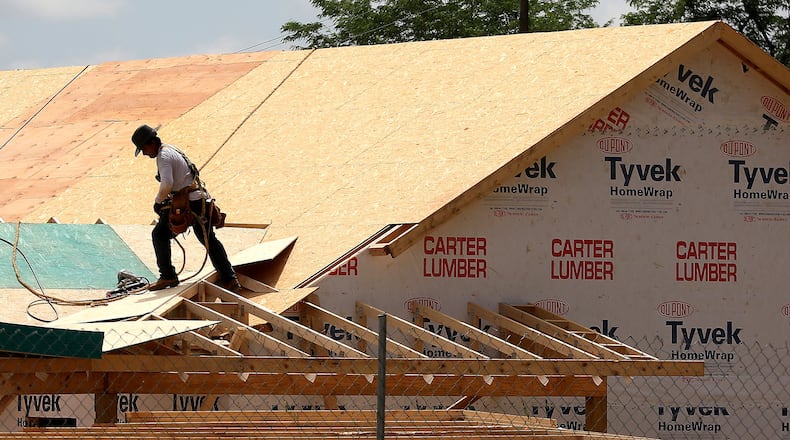The bill would also allow consumers to cancel a roofing contract within three days after signing.
Lang said “the objective of this legislation” is to avert scam artists.
“Typically, it comes after a big storm when there’s so much work, and some people may have to wait a couple of weeks or even a couple of months,” said Lang. “These people come in from out of state, take their money, and either don’t show up or only do part of the job.”
Local chambers of commerce haven’t read the bill that’s only received one hearing in the Senate’s Government Oversight and Reform Committee but say consumers seeking any service should be wary of any door-to-door sales.
“Don’t take an offer from somebody that comes to your door,” said Fairfield Chamber of Commerce President and CEO Kert Radel. “Consumers should beware that when someone comes to your door, you have to do the due diligence in order to make sure that they are a reputable company with a good history of doing the job right.”
Greater Hamilton Chamber of Commerce President and CEO Dan Bates said people need to do their homework to see “what’s a reasonable price” for the requested work.
It’s advisable to check with local chambers of commerce as members have to maintain certain standards and check any complaint histories with the Better Business Bureau. The bureau offers tips and advice on various business industries.
Bates said “the most important thing” for a contractor is not to pay upfront.
“If a contractor is telling you that you need to pay 50% upfront, then you better find another contractor,” said Bates. “Either he’s a scam artist, or he is using one new job to pay to finish on another job.”
Either way, he said that’s a scenario a consumer does not want to be in.
Radel said it’s not just about the lowest price.
“Consumers need to be aware, and don’t always go for the lowest price, go for the business that’s going to give you the quality work.”
BBB TIPS
Here are six tips for hiring a roofer from the Better Business Bureau:
- Make sure you understand the full scope of the project. What exactly is the roofer going to do? Will they do spot repairs or replacing the whole roof? Will they remove the old roof or covering it with the new roof? Ensure you understand the pros and cons of the solutions and that everything is detailed in your contract.
- Ask about clean-up and waste removal. Confirm the contractor is responsible for hauling away all old materials and cleaning up your site after their work is complete.
- Consider your gutters and landscaping. A roofing job requires the use of ladders that can cause damage when leaned against your gutters or stuck in your landscaping. How will your roofer protect against damage or fix things after the job is done?
- Plan for bad weather. Ask your roofer about what they will do to protect your home in the case of rain or snow.
- Check your insurance coverage. If your project is for fixing damage, check your homeowner’s insurance to see if your project is covered and how you should proceed if it is. (Also, check the contractor’s insurance coverage for things like worker’s compensation, property damage, and personal liability.)
- Different contractors for different roofing systems. Roofing contractors can be certified to install specific types of roofs. Check with the manufacturer to see if your contractor is certified for their system.
About the Author

